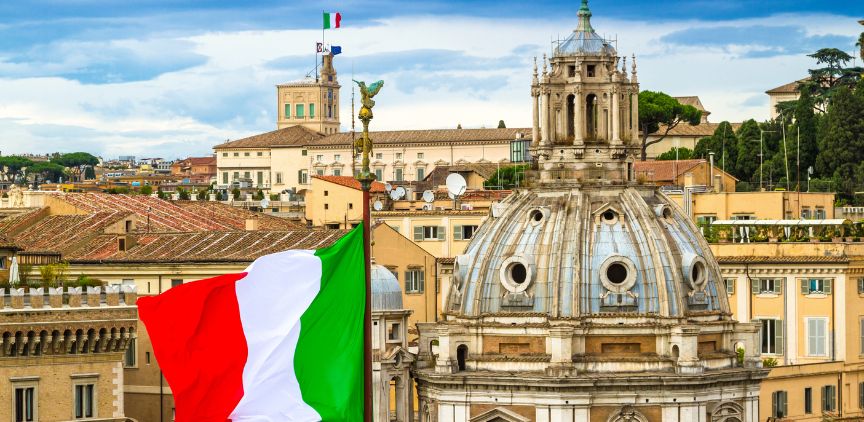Hidden Gems of Italy
Italy, a land of timeless beauty and rich history, is home to some of the world's most iconic landmarks. From the grandeur of the Colosseum to the mystical allure of Venice, Italy's iconic locations have captivated travelers for centuries. While many facts about these sites are well-known, there are hidden gems of information that add a fascinating layer to their history. In this article, we will unveil some of these lesser-known facts about Italy's iconic locations.
1. The Colosseum: A Canvas of Colors
The Colosseum, a symbol of ancient Rome, is not just a monochromatic ruin. Historians have found evidence that it was once adorned with colorful frescoes, making it a vibrant and lively arena in its heyday.
2. Vatican City's Postal Service
Vatican City, the world's smallest independent state, boasts its own postal service. The Vatican's stamps are highly collectible, and sending a postcard with a Vatican stamp is a unique experience for visitors.
3. Leaning Tower of Pisa: A Precarious Restoration
When the Leaning Tower of Pisa underwent restoration in the 1990s, engineers faced a daunting challenge. To prevent it from toppling over during the process, they had to temporarily increase its tilt. It leaned even more before being straightened slightly.
4. Pompeii's Graffiti Legacy
Pompeii, a city frozen in time by the eruption of Mount Vesuvius, is famous for its well-preserved ruins and ancient graffiti. Visitors can find ancient inscriptions and drawings that offer a glimpse into the daily life of Pompeii's residents.
5. Trevi Fountain's Coin Tradition
Throwing a coin over your left shoulder into the Trevi Fountain is a tradition that many tourists follow, believing it ensures their return to Rome. What's lesser known is that the coins collected from the fountain are donated to Caritas, a Catholic charity, and used to help those in need.
6. Uffizi Gallery's Vasari Corridor
The Uffizi Gallery in Florence houses one of the world's most impressive art collections. However, few know about the Vasari Corridor, a secret passageway built in the 16th century for the Medici family. It connects the Uffizi to the Pitti Palace and is lined with priceless artworks.
7. Lake Como: A Hollywood Haven
Lake Como has attracted numerous celebrities over the years, including George Clooney and Madonna, who own homes in the region. This picturesque lake is not just a natural wonder but also a celebrity hotspot.
8. The Pantheon's Perfect Dome
The Pantheon in Rome boasts a nearly perfect spherical dome. What's remarkable is that this architectural marvel was constructed over 2,000 years ago, and its concrete composition remains a subject of study and admiration for engineers and architects worldwide.
9. Roman Forum's Hidden Treasures
While the Roman Forum is well-known for its historical significance, it hides some lesser-known treasures, such as the remains of ancient taverns and shops that once lined its bustling streets.
10. Verona: The City of Love
Verona is not just famous as the setting for Shakespeare's "Romeo and Juliet." It's also home to an ancient Roman amphitheater, the Arena di Verona, which is still used for opera performances today.
11. Santa Maria del Fiore's Stunning Dome
Florence's Santa Maria del Fiore cathedral boasts a magnificent dome designed by Filippo Brunelleschi. What's intriguing is that Brunelleschi's innovative techniques for constructing the dome, such as the use of herringbone brickwork, remain a subject of study in engineering circles.
12. Venice's Secret Passages
Venice's intricate network of canals and narrow streets is well-known, but there are also hidden passages called "sotoporteghi" that connect many of the city's streets. These passages often lead to hidden squares and offer a glimpse of Venice off the beaten path.
13. Milan Cathedral: An Endless Construction
Milan Cathedral, or the Duomo di Milano, is an architectural masterpiece that took over six centuries to complete. The construction of this stunning Gothic cathedral began in 1386 and continued until 1965.
14. Sicily's Multicultural Heritage
Sicily, the largest Mediterranean island, has been a melting pot of cultures over the centuries, including Greek, Roman, Arab and Norman influences. Its rich and diverse history is evident in its architecture, cuisine and traditions.
Final Notes
Italy's iconic locations are visually stunning and brimming with stories and facts waiting to be discovered. The next time you visit these remarkable sites, remember that there's more than meets the eye, and the hidden history and secrets of these iconic landmarks are just waiting to be uncovered.
